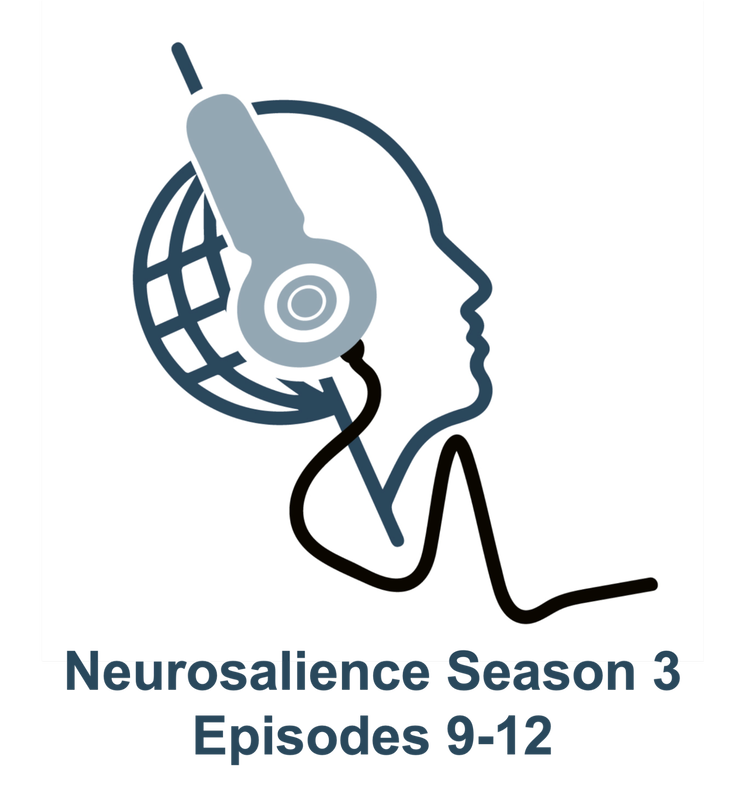Alfie WearnOn behalf of the OHBM Communications Committee Podcast Team
Season 3 Episode 9: An interview with OHBM's Comcom Guests: Elizabeth DuPre, Ilona Lipp, Stephanie Forkel, Kevin Sitek, Nils Muhlert Watch / Listen The OHBM Communications Committee, otherwise called ComCom, was created in 2015 to address the growing need to enhance communication between the society members and leadership. The committee has rapidly grown in number of members in addition to its reach and impact, fostering a presence on social media, establishing a website and a blog, increasing connections to lay media, and producing this very podcast. Communication is absolutely fundamental in science, and the quality of how information is captured and disseminated directly determines the vibrancy of a field and community. This conversation touches on all the aspects of what ComCom does and the impact of their efforts. In this episode, we discussed some of the challenges in OHBM communication - both internally between the various society groups and committees, and externally to the scientific and lay communities, the types of communication that ComCom fosters, and how such a committee receives feedback to guide and focus its efforts. Season 3 Episode 10: A neurologist pushing the limits of fMRI and forging new theories of brain organization. Guest: Jeff Binder Watch / Listen Jeff Binder is a professor and Vice-Chair for Research in the Department of Neurology at the Medical College of Wisconsin (MCW). His research focuses on neural systems underlying human language processing and concept representation, speech perception, reading, and aphasia. In the episode, we first trace his origin story – from a degree in music to receiving his M.D., then to his early work at MCW and the early days of fMRI. We go on to discuss some of the highlights of his work over his career, including his recent work putting forward the idea of the predominance of experiential-based concept representation in the brain, and the hubs of this representation are within the default mode network. We also discuss a bit of his early work on characterising and mapping the default mode network, as well as his current work on Aphasic patients. The discussion finishes up with his thoughts on the challenges of applying fMRI in a clinical setting and how this may be pushed further. Season 3 Episode 11: Moving from mapping to circuit modelling of the brain Guest: Lily Mujica-Parodi Watch / Listen Lily Mujica-Parodi is Director of the Laboratory for Computational Neurodiagnostics (LCNeuro) at Stony Brook University. LCNeuro's research focuses on the application of control systems engineering and dynamical systems to human neuroimaging time series (fMRI, MEG, EEG, NIRS, ECoG), with neurodiagnostic applications to neurological and psychiatric disorders. In this discussion, we cover Lily’s work on characterising the variability of electrophysiological and fMRI coherence as it relates to ageing and how this coherence is increased by providing a subject with ketones – an alternate source of energy to glucose. We then go into her work in modelling brain circuits and determining where the circuitry is altered across trajectories of disorders. In this context, we briefly discuss her work regarding the characterization of the effects on amygdala activation by different compositions of inhaled perspiration – either that produced in a fear state vs. that produced through exercise. Lastly, we discuss her lab’s work on neuroblox – a simulation program for testing circuit models of the brain and how it may open up the diagnostic value of brain imaging data. Season 3 Episode 12: Sex, Drugs & fMRI Guest: Matthew Wall Watch / Listen Matthew Wall is head of MRI applications at Invicro, a London-based company that explores ways to advance personalised medicine. Matthew is a medical imaging specialist – working on both methods and applications – and mostly using fMRI. His initial training was in experimental psychology but recently he has been involved in research on psychedelics, cannabis, sex hormones, depression, weight-loss, neurodegenerative disorders, and sexual function. This is a conversation about the challenges of fMRI in generating biomarkers and how the central challenge that has been given less attention is better characterization and understanding of the many dimensions of human variability. We also get into a great discussion on psilocybin and his brain imaging work towards understanding how it alleviates depression. We then talk about cannabis, as well as his more recent work on understanding the neural correlates of various treatments to reduce hypoactive sexual desire disorder. Thanks to the rest of our podcast team for their help producing these episodes: Anastasia Brovkin, Omer Faruk Gulban, Jeff Mentch, Stephania Assimopoulos and Alejandra López Castro. And, of course, to our host Peter Bandettini. Great work, all. If you have guest or topic suggestions, we’d love to hear them. Please email the OHBM Communications Committee ([email protected]) or Peter directly ([email protected]).
0 Comments
Your comment will be posted after it is approved.
Leave a Reply. |
BLOG HOME
Archives
January 2024
|

 RSS Feed
RSS Feed